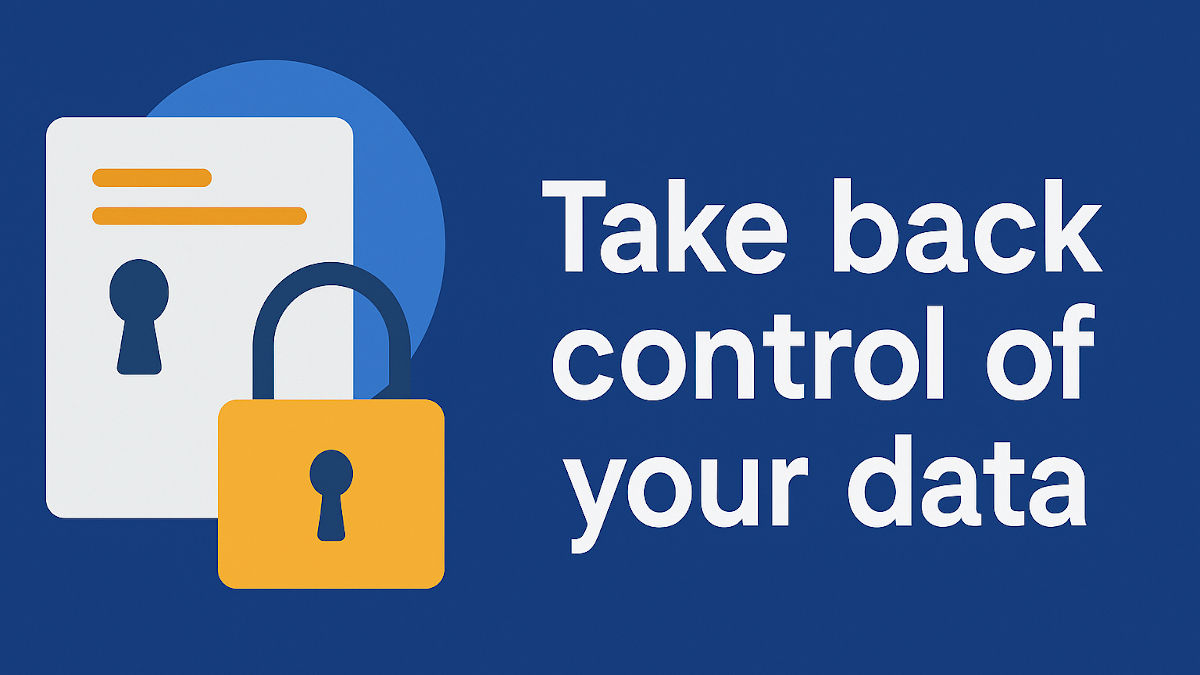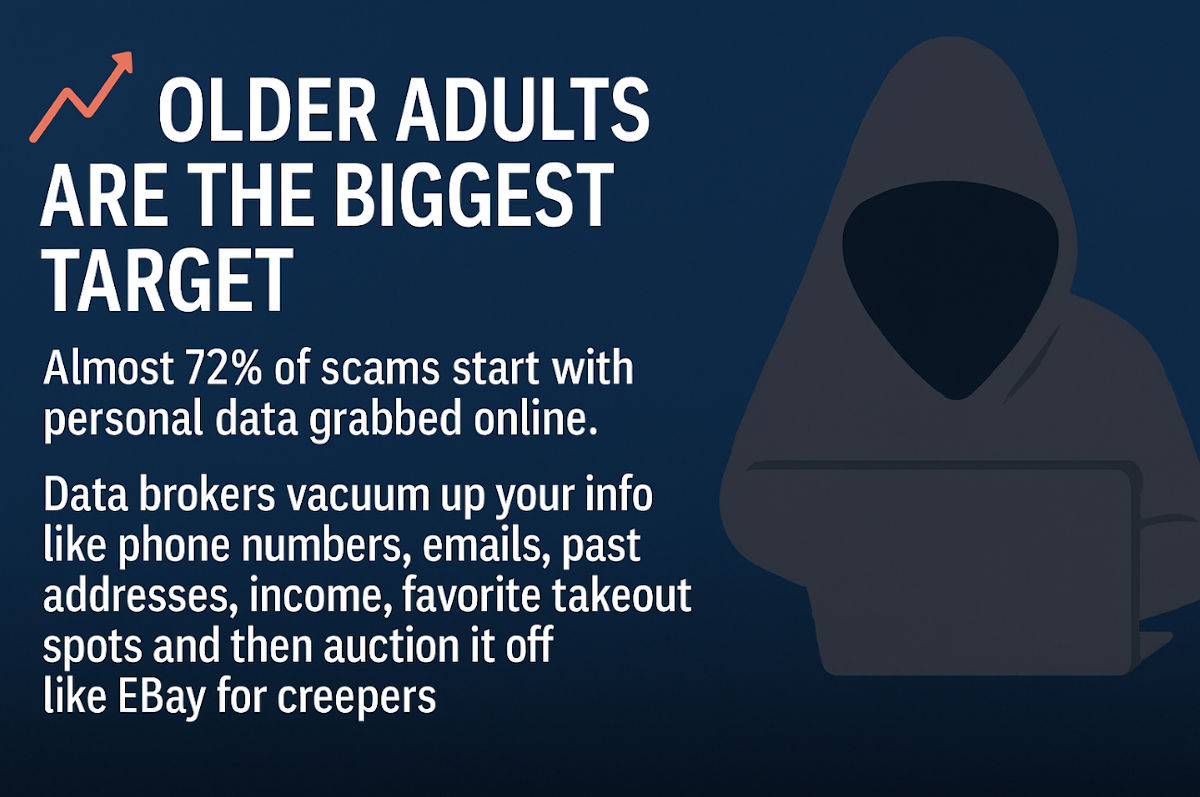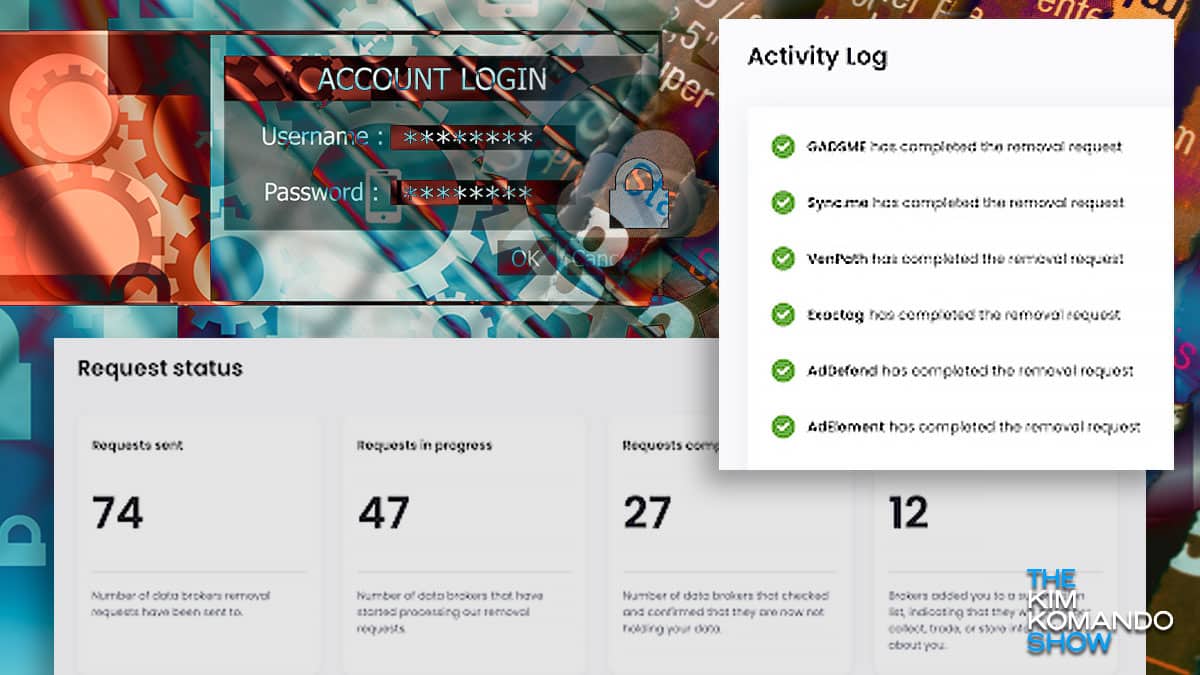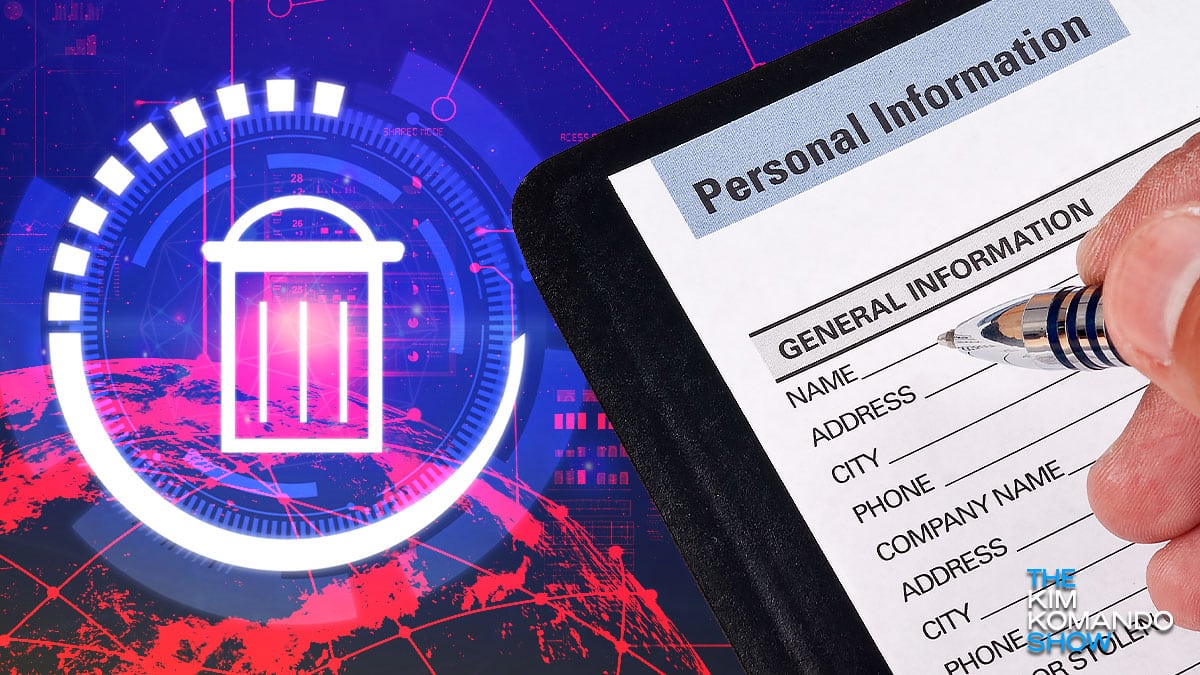Just over half an hour. That’s all it takes for kids to get hooked on TikTok, according to leaked internal documents. Plus, why being nice to chatbots might benefit you, and what’s going on with Sam Altman’s mysterious orb device. Kim also talks to Darius Belejevas, head of Incogni, about how data brokers collect your personal info — even if you never gave it to them.
5 steps to take control of your data

Every day, it feels like there’s another company saying, “Oops, we lost your info.” Feel helpless? Don’t. I’ve got some smart steps that help lock things down and keep creeps from using your info against you. Let’s jump in.
🔒 Change your username and passwords
If hackers get one of your passwords, they’ll try it everywhere. Don’t make it easy for them.
👉 Make it tough to crack:
- Go long and random: Aim for at least 16 characters with upper and lowercase letters, numbers and symbols.
- Use a passphrase: “BigKimK0mandoF@n!” beats “abc123.”
- Lie on security questions: Your mom’s maiden name is a Google search away. Give a fake answer and jot ‘em down somewhere safe.
🔑 Turn on multi-factor authentication (MFA)
You’ve probably used this already. It’s that code you get via text or using your fingerprint to log in. MFA makes you 99% less likely to be hacked.
Set it up:
- Android: Open your Google Account > Security. Under “How you sign in to Google,” choose Turn on 2-Step Verification and follow the prompts.
- iPhone: Go to Settings > [your name] > Sign-In & Security > Two-Factor Authentication. Select Add a Trusted Phone Number and follow the steps.
✅ Pro tip: Lock down your payment apps like CashApp, Venmo and Zelle. Here’s how.
🧊 Freeze your credit
This one’s big. If your name, address or Social Security number were exposed, a scammer could open a credit card or take out a loan in your name.
Elder fraud is exploding: Your data is making it worse

I’ve got bad news: Today’s online scammers know everything about you. They’re scraping your info and everyone else’s from the web and buying the rest from data brokers and people-search sites.
Folks age 60-plus are the biggest target. Almost 72% of scams start with personal data grabbed online. Data brokers vacuum up your info like phone numbers, emails, past addresses, income, favorite takeout spots and then auction it off like eBay for creepers.
TikTok addicts kids in 35 minutes
Protect your privacy without lifting a finger: Tired of your personal data floating around online? Incogni scrubs it from data brokers and people-search sites. With my exclusive link, get 60% off unlimited plans. Choose which sites to target, and take back your privacy today!
Your privacy restored

Ever Googled yourself and thought, “What the heck is that doing online?” Old addresses, phone numbers and even the car you drive are all out there. Worse, it’s probably on some sketchy people search site or buried in a mountain of search results.
What you need to know about DeepSeek

I’ve been saying it for years: The country that masters AI will dominate the world economically, politically and militarily. Since ChatGPT dropped, the U.S. seemed untouchable. Most of us Americans assumed we were a couple of years ahead of China in terms of AI, but the game has changed — and fast.
😨 Data brokers turn deadly: This is horrifying. The man accused of assassinating Minnesota state Rep. Melissa Hortman and her husband allegedly used people search sites (paywall link) to stalk them. If criminals can track politicians, they can track you. That’s why you need Incogni to get your info off those websites.
Protect your privacy without lifting a finger: Tired of your personal data floating around online? Incogni scrubs it from data brokers and people search sites. With my exclusive link, get 60% off unlimited plans. Choose which sites to target, and take back your privacy today!
Get your info removed from the internet: Data brokers sell your info all the time without your knowledge. Incogni helps to delete your private information online automatically. So many readers and listeners say it’s worth every penny. I definitely agree. Get 60% off with code KIM60 today!
😤 Sick of strangers selling your personal info? That’s why I use and trust Incogni. It forces data brokers to delete your private information automatically. Right now, you can get 60% off with my exclusive deal . It’s a small price to pay for real peace of mind. Take back control of your privacy today!
Why I used Incogni to wipe my info off the internet

I got this note the other day from Mike S. (Hi, Mike! 👋): “Next time you talk about Incogni, maybe you can do a deep dive?”
Mike, you’re not the only reader who’s asked for a more in-depth look at how Incogni works and why I chose it to wipe my info from data broker sites. I picked this service before they became a sponsor. So, without further ado …
Shortcut to reading annoying privacy policies

Tech privacy policies are confusing on purpose. I know, big shocker! But I’m always surprised by just how difficult these things are to comb through and what they hide.
Today, I’m calling out the biggest offenders — and sharing one of my favorite, easy-to-use privacy tools.
How to remove personal data from data-broker sites (Spoiler: I use Incogni)

I’ll never forget when my son, Ian, asked me where in Los Angeles I lived. I told him I couldn’t remember — it was 30 years ago, and I lived there for maybe six months. A few minutes later, he called and had the address. It was available for free to anyone on the internet on an online people search directory.
Data brokers are selling your life. Here’s how to stop them.

The data broker industry is worth almost $400 billion. Whether it’s your Google Search history, movies you’ve streamed or a summary of your last doctor’s visit, they’re keeping tabs on your life.
Feel violated? You should. These brokers even sell your data to scammers so they can use it to target you. No wonder most people get overloaded with spam texts and calls every day.
How the government spies on you
When I shared my tip on opting out of the Transportation Security Administration’s new facial recognition tech at airports the other week, I got a ton of questions. First and foremost, though, a lot of you said, “I didn’t know I could do that.”
Your driving apps are spying on you
Apps like MyRadar and GasBuddy are sharing your driving data with data brokers. Find out exactly what they’re reporting.
Your data: It’s all posted online - But there's a simple way to remove it

A loyal reader, Racquel, emailed me recently after dealing with a very angry customer at work. “Last week, she left me a voicemail and said that I was behind all her problems and she was ‘going to find’ where I lived.”
Your data is worth big money — and you can take it back

“Call me for a good time.” That simple message prompted more creepy calls and texts than you can believe. A woman contacted me after someone posted that message — alongside her cellphone number — on a porn site.
How to delete yourself from the internet

I feel lucky to have the job I do. Every day, I help folks stay up to date on tech and help solve all those digital-life problems Google just can’t answer.
And after all these years, I’ll toot my own horn a little and say there’s not much that stumps me anymore. I did get a question recently, though, on my daily podcast that had a not-so-happy answer.
Overwhelmed with spam texts? Do this now

Ever replied to a spam message with STOP or UNSUBSCRIBE? If so, you’re setting yourself up for even more annoyance. You rightfully think that you’re ending the noise, but you’ll make it worse.
Why? Spammers are hitting up as many people as possible, searching for working contact information. When you interact, you’re saying, “Yes, this phone number belongs to someone!” That’s great news for them. It lets them know you’re a real person they should target more often.